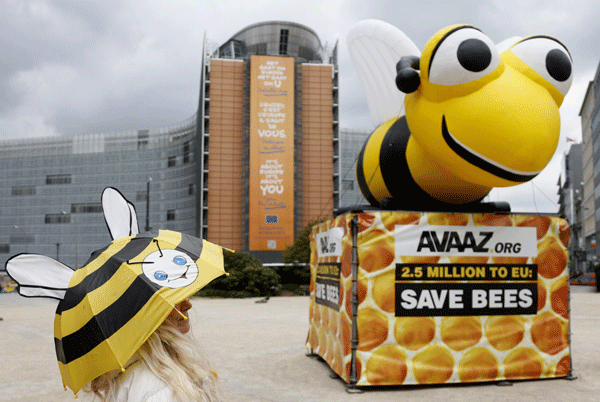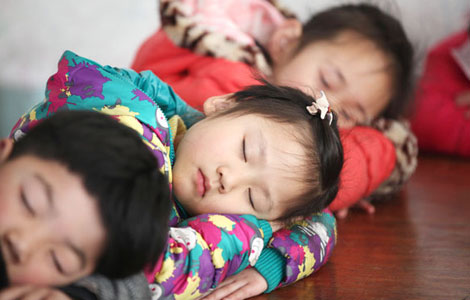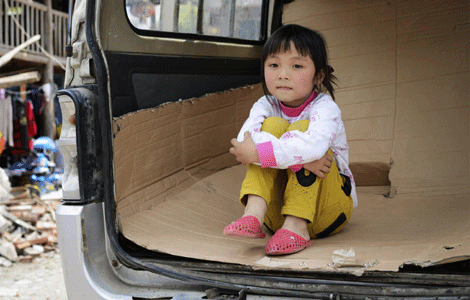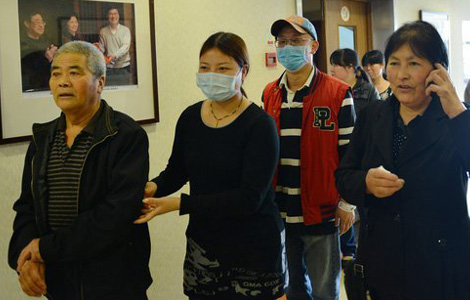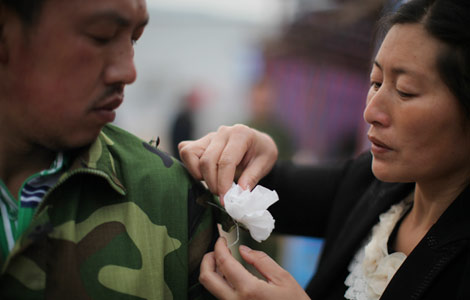EU to ban pesticides blamed for harming bees
Updated: 2013-04-30 07:52
(Agencies)
|
||||||||
BRUSSELS - The European Union will ban three of the world's most widely-used pesticides for two years because of fears they are linked to a plunge in the population of bees critical to the production of crops.
The executive European Commission said on Monday it would press ahead with the ban on a class of pesticides known as neonicotinoids, produced mainly by Germany's Bayer and Switzerland's Syngenta, despite the EU's 27-member states failing to reach an agreement on the matter.
The Commission proposed the ban in January after EU scientists said the chemicals posed an acute risk to honeybees, which pollinate many of the crops grown commercially in Europe.
However, pesticide manufacturers and some scientists say no link has been proven between the use of neonicotinoids and a sharp decline in bee numbers in Europe in recent years - a phenomenon known as "colony collapse disorder".
Basel-based Syngenta criticised the Commission's decision, blaming declining bee numbers on habitat loss and diseases carried by parasites such as the Varroa mite.
"The proposal is based on poor science and ignores a wealth of evidence from the field that these pesticides do not damage the health of bees," the company said in a statement.
The ban will hit sales of Syngenta's popular Cruiser seed treatments, widely used to protect crops such as rapeseed and maize from aphids and other pests.
But it could boost sales of chemical alternatives to neonicotinoids produced by rival firms such as Dow Chemical , leading some scientists to point out that little is known about the effects of such older compounds on bee health.
Syngenta and Bayer say research shows a neonicotinoid ban could cost Europe billions of euros in lost crop yields.
A 2011 United Nations report, meanwhile, estimated that bees and other pollinators such as butterflies, beetles and birds do work worldwide worth $203 billion a year to the human economy.
In total, 15 EU countries voted in favour of the ban - two more than the last time governments voted on the issue in March - but they failed to reach the weighted majority needed to adopt the ban outright, meaning the decision passed to the Commission.
The ban will apply to the use of neonicotinoids on all crops except winter cereals and plants not attractive to bees, such as sugar beet. It will apply from December 1, 2013 - five months later than originally proposed by the Commission.
Most Viewed
Editor's Picks

|

|

|

|

|

|
Today's Top News
City unites to say farewell
Beauties turn entrepreneurs
Small stores rely on new retail revolution
Flooding season nears in Ya'an
Taobao creates job specifications
China's oil, gas output up slightly in Q1
SINA rallies on Alibaba's investment
Call for greater expat employee scrutiny
US Weekly

|

|
